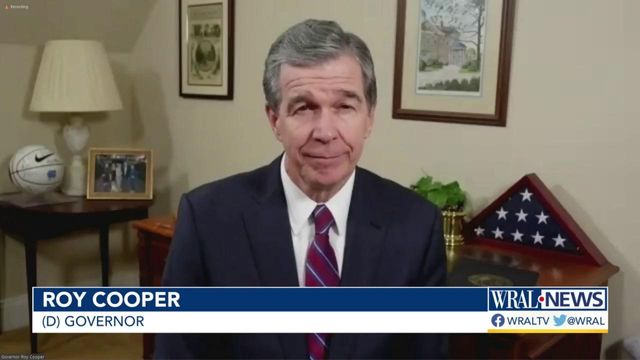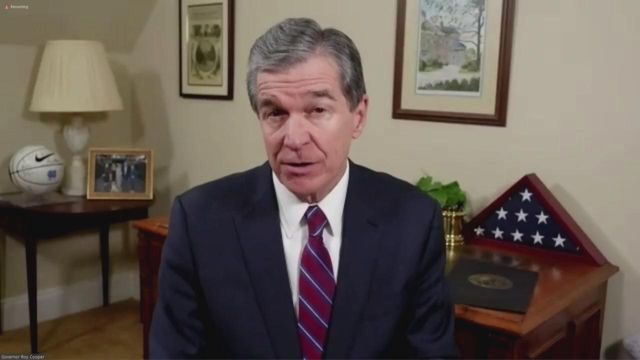Gov. Cooper talks Hedingham shooting tragedy in talk geared toward changing gun policy
North Carolina Gov. Roy Cooper and the bipartisan group gun safety group 97Percent want to curtail tragedies like the Oct. 13 Raleigh mass shooting. The group also wants to bring more awareness to keeping families and communities safe when it comes to guns. delivered the keynote remarks on Thursday at a virtual annual conference for 97Percent, a bipartisan group focused on gun safety.
Posted — UpdatedThe conference was titled “What’s Next? An Innovative Approach to Reducing Gun-Related Deaths.”
Statistics released by the North Carolina Department of Health and Human Services show five North Carolinians per day die from a firearm-related death, and more than 1,700 died in 2020. There were 116 North Carolina children who died of a firearm-related injury in 2021. Black North Carolinians are almost twice as likely as white North Carolinians to be killed by a gun.
The North Carolina Department of Health and Human Services released a document describing public health strategies to reduce firearm violence and misuse, not only in cases of shootings but also accidents and suicides.
"Last week, I was talking with some emergency room physicians about gun violence and its effect on young people," Cooper said. "That discussion was passionate and jarring. One doctor said to me, 'Putting pressure on a gaping bullet wound in a 4-year-old changes your life.' Another one said, 'There's a wail a mother makes when you tell her than her wounded child has died. It's a sound that is distinct and soul-crushing. I so wish I never have to hear it again.'"
Cooper spoke about building legislation geared toward improving gun safety with an added urgency after the Raleigh shooting left a tragic scar on the region. He wants more steps to be taken to get guns out of the hands of those who many feel shouldn't have access to them.
"My words and prayers may have been of some comfort, but they wanted more," said Cooper after speaking with families affected by the Hedingham shooting. "They were angry. They wanted justice, and they wanted to keep it from happening again."
Cooper said most people in North Carolina want something done.
"We won’t take guns away from responsible owners," Cooper said. "We just all want to feel safe.”
"First and foremost, we have to follow the data ... to look at where we see these things happening," Kinsley said.
Kinsley also suggested leaders talk with people close to gun violence to find out what could have been done to prevent it. Other suggestions include education on better gun storage and strengthening protective orders.
Kinsley thinks it is possible for people to come together on this.
"This is why we wanted to start in a space where we have consensus and start in a space where we have efforts underway already,” Kinsley said.
On Thursday, leaders acknowledged solutions could cost lots of money. Also, it means for changes to happen, state lawmakers would have to get on board as well.
Related Topics
• Credits
Copyright 2024 by Capitol Broadcasting Company. All rights reserved. This material may not be published, broadcast, rewritten or redistributed.






